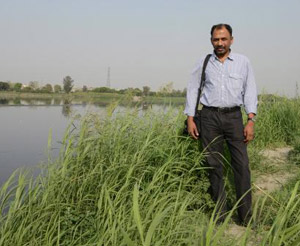
Ravi Agarwal, founder-director of ToxicLinks, has been involved in the dissemination of information about toxicity, waste management, food safety and other environmental issues. Here, he shares his thoughts about why change, as far as water is concerned, is slow.
“As far as water is concerned, the laws are already in place. These include some important ones like Water (Prevention and Control of Pollution) Act, 1974, the Environment Protection Act, 1986, which incorporates Hazardous Waste (Management and Handling) Rules, and the Bio-Medical Waste (Management and Handling) Rules, to name a few.
But change takes place over a period of time. People are often just happy to get water, since it is increasingly scarce; they do not really bother about its quality. Access to clean water is less thought of. Clean water has not become so important politically and as a result, change is slow.
I was pleasantly surprised, though, at how much people registered the show, especially for an issue like water, which is not roti, kapda or makaan. It was able to cut across social strata and speak to various kinds of people. From nurses in hospitals to my household help, people asked me questions about water quality. Normally, I wouldn’t have had this conversation with them. In general, a lot of awareness was created and that is the fundamental keystone for any change to happen.”